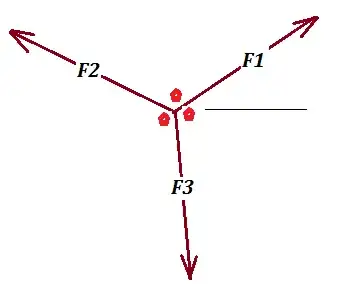Prove that $$\cos^2(\theta) + \cos^2(\theta +120^{\circ}) + \cos^2(\theta-120^{\circ})=\frac{3}{2}$$
I thought of rewriting $$\cos^2(\theta +120^{\circ}) + \cos^2(\theta-120^{\circ})$$ as $$\cos^2(90^{\circ}+ (\theta +30^{\circ})) + \cos^2(90^{\circ}-(\theta-30^{\circ}))$$ However I don't seem to get anywhere with this. Unfortunately I don't know how to solve this question. I would be really grateful for any help or suggestions. Many thanks in advance!
